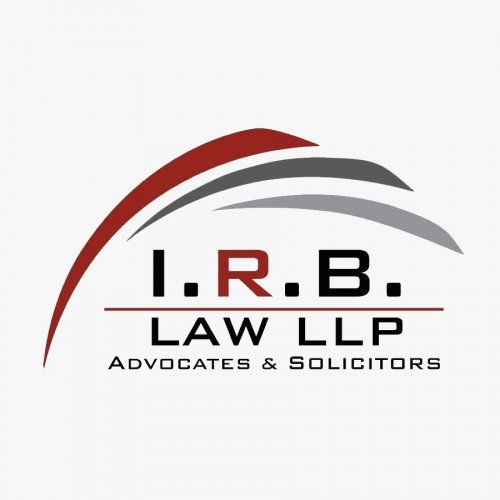Best Education Law Lawyers in City Hall
Share your needs with us, get contacted by law firms.
Free. Takes 2 min.
List of the best lawyers in City Hall, Singapore
About Education Law in City Hall, Singapore
Education law in City Hall, Singapore, encompasses a broad array of legal issues involving the administration and operation of educational institutions, as well as the rights and responsibilities of students, parents, and educators. This area of law is vital for ensuring that educational institutions adhere to regulations and standards set by the Ministry of Education and other governing bodies. Education law covers topics such as student rights, school policies, teacher contracts, special education needs, and disciplinary actions.
Why You May Need a Lawyer
Situations where individuals may require legal assistance in education law include, but are not limited to, disputes over school admissions, allegations of discrimination or harassment, issues surrounding special education and accommodations, disciplinary actions challenged by students or parents, and conflicts regarding educational materials or curriculum. Additionally, educators dealing with employment-related issues such as contract disputes or unfair dismissal may also seek legal advice.
Local Laws Overview
Key aspects of local laws relevant to education law in City Hall, Singapore, include the Education Act, which governs the conduct of schools and education providers, addressing compulsory education, school discipline, and educational rights. The Children and Young Persons Act may also be applicable in cases involving minors, especially concerning child welfare and protection rights. Additionally, anti-discrimination laws ensure that students and staff are not subject to unfair treatment based on race, gender, or disability.
Frequently Asked Questions
1. What rights do students have under Singaporean law?
Students have the right to receive education in a safe environment, protection from discrimination, and access to necessary educational resources tailored to their specific needs.
2. Can private schools set their own rules?
Yes, private schools in Singapore can set their own rules; however, they must comply with national regulations and standards established by the Ministry of Education.
3. How are parents involved in the educational decision-making process?
Parents are typically involved through parent-teacher meetings, advisory roles in Parent-Teacher Associations (PTAs), and consultations regarding their child's educational needs, especially in cases requiring special accommodations.
4. What constitutes educational discrimination?
Education discrimination includes unfair treatment based on characteristics such as race, gender, disability, or any other protected status, leading to unequal educational opportunities.
5. What recourse do I have if my child is unfairly expelled?
If a child is unfairly expelled, parents can appeal directly to the school board and, if necessary, may seek legal advice to review the case and potentially file a complaint with relevant educational authorities.
6. What is the role of the Ministry of Education in Singapore?
The Ministry of Education is responsible for setting educational policies, standards, and curricula, as well as overseeing the implementation of educational programs and initiatives across the country.
7. Can teachers legally strike in Singapore?
The right to strike is heavily restricted in Singapore, especially within essential services such as education. Alternative dispute resolution methods are preferred for resolving employment issues.
8. What is the process for dealing with bullying in schools?
Schools have specific policies and procedures for addressing bullying. This typically involves reporting incidents to school authorities, conducting investigations, and implementing appropriate disciplinary measures or interventions.
9. What are my legal options if my child needs special education services?
Parents have the right to request evaluations and tailored educational plans for children requiring special education. Legal avenues are available to challenge refusals or inadequate accommodations.
10. How are homeschooling regulations managed?
Homeschooling is uncommon but permissible under strict guidelines from the Ministry of Education. Parents intending to homeschool must seek approval and ensure their curriculum meets national educational standards.
Additional Resources
Several resources and organizations may be helpful for legal advice in education law:
- Ministry of Education, Singapore - for educational policies and regulations
- Singapore Children’s Society - for advocacy and assistance related to child protection and welfare
- Legal Aid Bureau - offering legal advice and assistance for those eligible
- Law Society of Singapore - providing a directory of lawyers specializing in education law
Next Steps
If you require legal assistance in the field of education law, consider starting by contacting a specialized attorney who is knowledgeable about local laws and regulations. Prepare documentation related to your case, such as correspondence with educational institutions or previous legal consultations. Additionally, consult with relevant government bodies or educational authorities to seek preliminary guidance or file necessary complaints. Contact the Legal Aid Bureau if you require financial assistance for legal representation.
Lawzana helps you find the best lawyers and law firms in City Hall through a curated and pre-screened list of qualified legal professionals. Our platform offers rankings and detailed profiles of attorneys and law firms, allowing you to compare based on practice areas, including Education Law, experience, and client feedback.
Each profile includes a description of the firm's areas of practice, client reviews, team members and partners, year of establishment, spoken languages, office locations, contact information, social media presence, and any published articles or resources. Most firms on our platform speak English and are experienced in both local and international legal matters.
Get a quote from top-rated law firms in City Hall, Singapore — quickly, securely, and without unnecessary hassle.
Disclaimer:
The information provided on this page is for general informational purposes only and does not constitute legal advice. While we strive to ensure the accuracy and relevance of the content, legal information may change over time, and interpretations of the law can vary. You should always consult with a qualified legal professional for advice specific to your situation.
We disclaim all liability for actions taken or not taken based on the content of this page. If you believe any information is incorrect or outdated, please contact us, and we will review and update it where appropriate.











